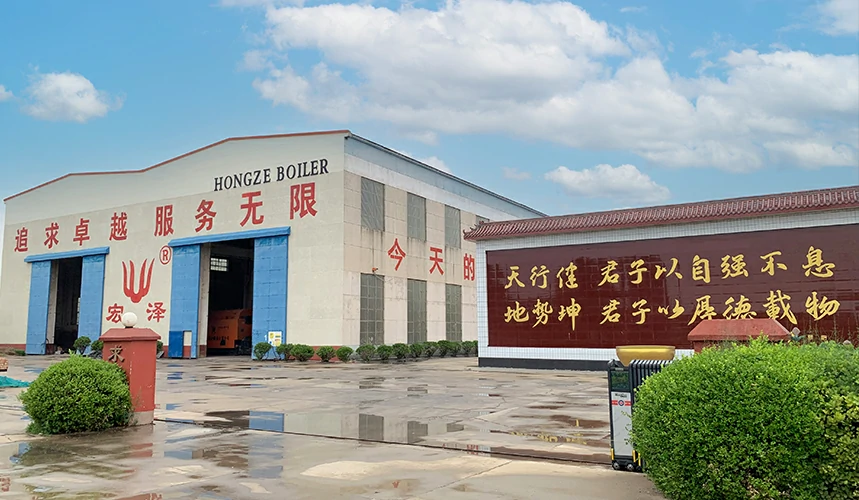
Nov . 05, 2024 10:28 Back to list
hot water furnaces
Understanding Hot Water Furnaces A Comprehensive Guide
Hot water furnaces play a crucial role in heating our homes and ensuring a comfortable living environment, especially during the colder months. This article will explore what hot water furnaces are, how they operate, the different types available, and tips for maintenance and efficiency.
What is a Hot Water Furnace?
A hot water furnace is a heating system that uses hot water to provide warmth throughout a building. It works by heating water in a boiler and then circulating it through pipes to radiators or underfloor heating systems. The heat emitted from the surfaces warms the surrounding air, effectively raising the ambient temperature of the space. This method of heating is known for its energy efficiency and comfort, as it provides an even distribution of warmth without the drafts often associated with forced air systems.
How Does a Hot Water Furnace Work?
The operation of a hot water furnace begins with a heat source, which could be natural gas, oil, propane, or electricity. The chosen fuel heats water in the boiler. Once the water reaches the desired temperature, it is pumped through a network of pipes to the radiators or heating elements installed in various parts of the home.
As the hot water travels through the system, it transfers heat to the surrounding air. Once the water cools down, it returns to the boiler to be reheated, completing the cycle. This system not only retains heat well but also operates more quietly than traditional forced air systems.
Types of Hot Water Furnaces
There are several types of hot water furnaces available, each with its own features
2. Combination Boilers These units provide both heating and hot water, making them an efficient choice for homes with limited space.
3. High-Efficiency Boilers These systems utilize advanced technology to maximize energy use and reduce utility bills, often achieving efficiency ratings over 90%.
hot water furnaces

4. Electric Boilers While not as common, electric boilers are excellent for homes without access to gas or oil lines. They are easier to install and maintain but may have higher operational costs depending on electricity rates.
Advantages of Hot Water Furnaces
Hot water furnaces offer several advantages over other heating systems. Firstly, they provide consistent comfort by eliminating cold spots and drafts, creating a more pleasant indoor climate. Secondly, they are energy efficient, especially high-efficiency models, which can significantly lower heating bills. Finally, hot water systems can improve indoor air quality as they do not circulate dust and allergens like forced air systems can.
Maintenance Tips for Optimal Performance
To ensure your hot water furnace operates efficiently and lasts for many years, regular maintenance is essential. Here are some tips
1. Annual Inspections Have a professional inspect and service your furnace annually. They can identify potential issues before they become major problems.
2. Bleed the Radiators Air can become trapped in your radiators, preventing them from heating effectively. Once a year, bleed the radiators to release any trapped air.
3. Check the Boiler Pressure Monitor the pressure gauge on your boiler. It should typically be between 12-15 psi when operating. If the pressure is too low or high, it may indicate a problem.
4. Insulate Pipes Insulating hot water pipes reduces heat loss as the water travels to your heating elements, improving overall efficiency.
5. Flush the System Sediment can build up in your boiler over time. Flushing the system regularly will remove these deposits and ensure optimal performance.
Conclusion
Hot water furnaces are a reliable and efficient way to heat your home, providing comfort and maintaining air quality. By understanding how they work, the different types available, and the best maintenance practices, homeowners can ensure their heating systems operate at peak performance. Investing time and effort into maintaining your hot water furnace can lead to considerable savings and a cozy, inviting home for years to come.
-
High-Efficiency Commercial Oil Fired Steam Boiler for Industry
NewsJul.30,2025
-
High-Efficiency Biomass Fired Thermal Oil Boiler Solutions
NewsJul.30,2025
-
High Efficiency Gas Fired Thermal Oil Boiler for Industrial Heating
NewsJul.29,2025
-
High-Efficiency Gas Fired Hot Water Boiler for Sale – Reliable & Affordable
NewsJul.29,2025
-
High Efficiency Biomass Fired Hot Water Boiler for Industrial and Commercial Use
NewsJul.29,2025
-
High-Efficiency Biomass Fired Hot Water Boiler for Industrial Use
NewsJul.28,2025
Related PRODUCTS






















